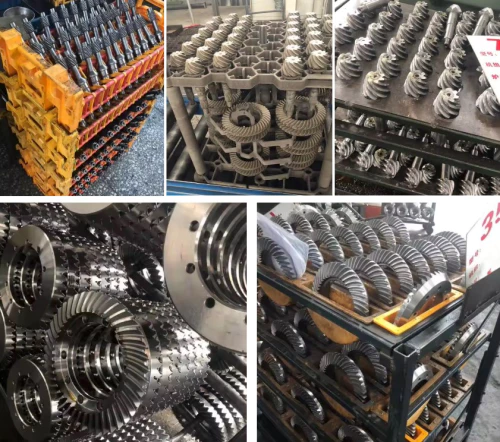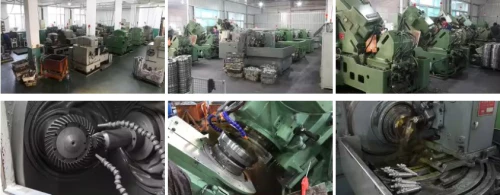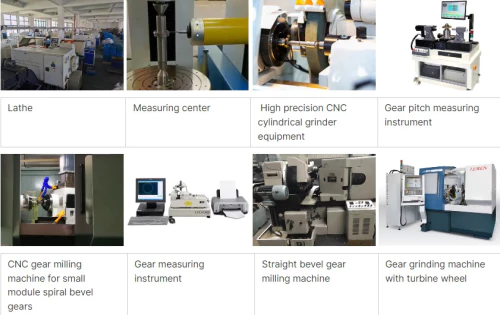Forging Bevel Gear Load Distribution Optimization Tools
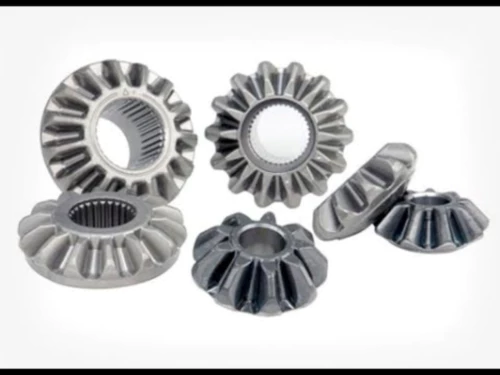
Introduction
Forging bevel gears are a type of bevel gears that are manufactured through the forging process. Forging involves shaping metal through the application of localized compressive forces, typically using a die or hammer. In the case of bevel gears, the forging process is used to form the gear teeth and create the desired gear geometry.
Advantages of Forging Bevel Gears
-
High Strength
Forging bevel gears are known for their high strength, making them suitable for applications with heavy loads and high torque requirements.
-
Improved Fatigue Resistance
Due to their forged construction, these gears exhibit improved fatigue resistance, ensuring reliable and long-lasting performance.
-
Precise Gear Tooth Geometry
The forging process allows for the creation of precise gear tooth geometry, resulting in smooth and efficient gear operation.
-
Cost-Effectiveness
Forging bevel gears offer cost-effectiveness in terms of production and maintenance, making them a popular choice in various industries.
-
Versatility in Material Selection
The forging process allows for the use of a wide range of materials, providing flexibility in selecting the most suitable material for specific applications.
-
Enhanced Structural Integrity
Forged bevel gears exhibit enhanced structural integrity, ensuring reliable performance even under demanding conditions.
-
Tailored Mechanical Properties
The forging process enables the adjustment of the mechanical properties of bevel gears to meet specific application requirements.
-
Reduced Lead Time
The use of forging technology can reduce production lead time, allowing for quicker delivery of bevel gears to customers.
-
Environmental Sustainability
Forging is an environmentally sustainable manufacturing process that minimizes waste and energy consumption.
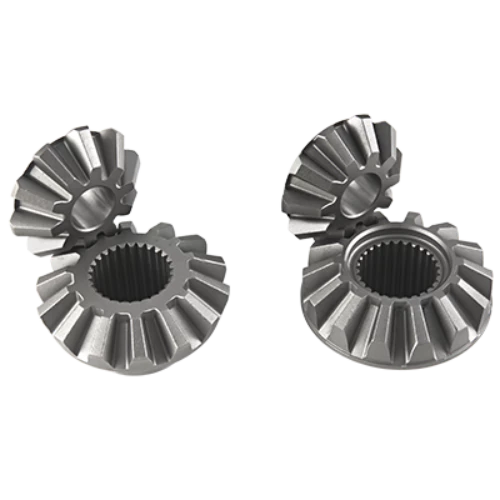
Working Principle
Forging bevel gears operate based on the fundamental principles of gear mechanisms. They consist of two intersecting shafts, each with a conically shaped gear (bevel gear) mounted on it. The teeth of the bevel gears are designed to have a specific tooth profile, such as straight, spiral, or hypoid, depending on the application requirements.
When the input shaft rotates, the engagement of the teeth of the bevel gears causes a transfer of rotational motion and torque to the output shaft. The contact between the mating teeth ensures power transmission while maintaining proper alignment and smooth operation.
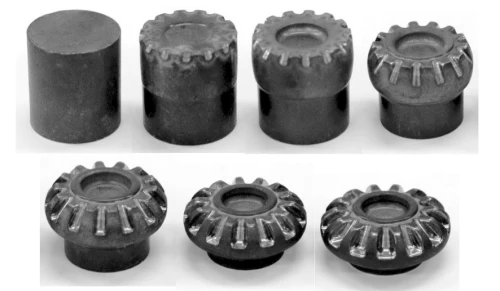
Applications of Forging Bevel Gears
-
Automotive Industry
Forging bevel gears find applications in various automotive systems, including transmissions, differentials, and steering mechanisms.
-
Industrial Machinery
Industrial machinery, such as heavy-duty equipment and machine tools, rely on forging bevel gears for efficient power transmission.
-
Aerospace and Defense
Forging bevel gears play a critical role in aerospace and defense applications, ensuring reliable operation in aircraft and military machinery.
-
Renewable Energy
Wind turbines and solar power systems utilize forging bevel gears to convert rotational motion into electrical energy.
-
Marine and Shipbuilding
Forging bevel gears are essential components in marine propulsion systems and various shipbuilding applications.
-
Agricultural Machinery
Agricultural machinery, such as tractors and harvesters, rely on forging bevel gears for efficient power transmission in demanding farming environments.
-
Power Generation
Power generation facilities, including hydroelectric and thermal power plants, use forging bevel gears in turbines and generators.
-
Robotics and Automation
Forging bevel gears are utilized in robotics and automation systems to enable precise and efficient movement.
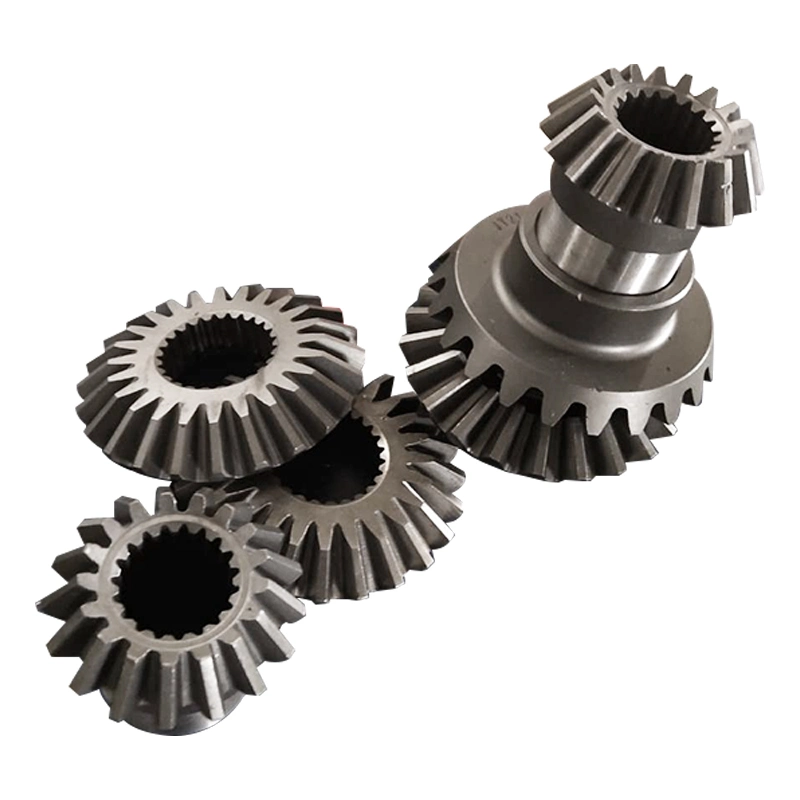
Installation and Maintenance
Installation
- Proper Alignment
- Lubrication
- Mounting Bolts
- Inspection
Maintenance
- Lubrication
- Cleaning
- Inspection
- Replacements
- Gearbox Maintenance
- Load Monitoring
- Training and Expertise
- Record-Keeping
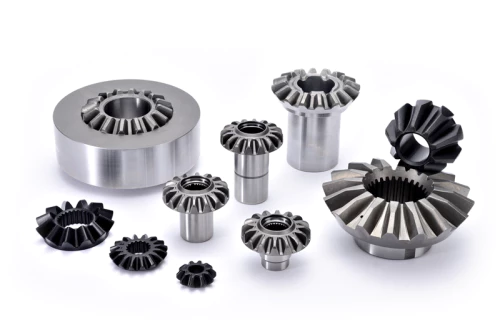
Selecting the Right Forging Bevel Gear
- Application Requirements
- Design and Specifications
- Material Selection
- Quality and Reliability
- Load-Carrying Capacity
- Efficiency and Performance
- Customization and Adaptability
- Cost Considerations
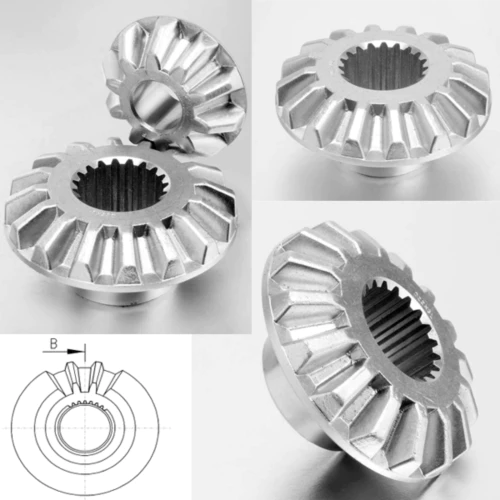
About Shaoxing Chaoli
Shaoxing Chaoli is a professional manufacturer of gears in China. Our products are exported to different countries such as Spain, the Netherlands, the United States, South Korea, Turkey, and Russia. We sincerely hope to help customers develop new products and solve technical and quality problems. We are committed to providing high-quality products, fair prices, and perfect services to meet the needs of our customers.
In addition to forging bevel gears, Shaoxing Chaoli also offers other gear products such as Worm Gear, spiral bevel gear, Helical Gear, Spur Gear, plastic gear, and metric gear rack. We welcome inquiries for customized products.
Shaoxing Chaoli has a team of experienced engineers and employs a complete set of strict quality management systems. We have advanced precision measuring instruments and full-process production monitoring systems to ensure the quality and reliability of our products. With our competitive advantages, we have established long-term partnerships with domestic steel rolling mills, shipyards, precision machine tool factories, automation machinery factories, and distribution companies. Our products are also exported to Western Europe, the Middle East, Southeast Asia, and other regions.
